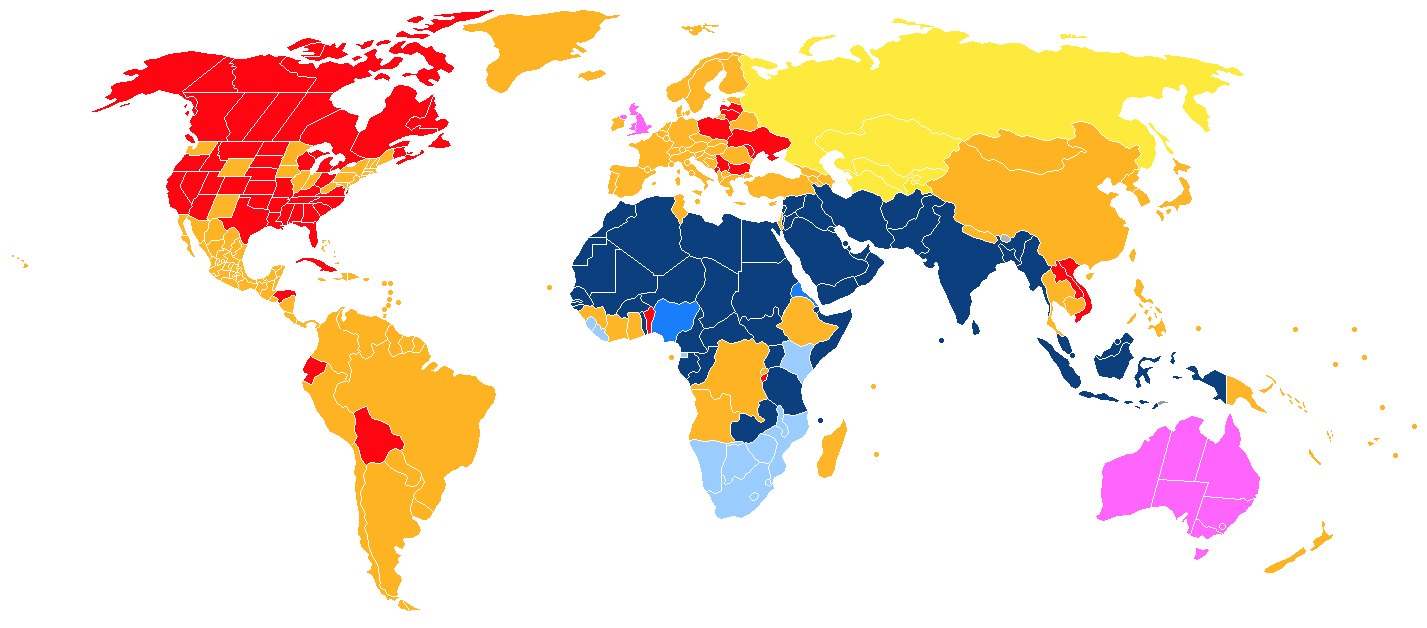|
Amatonormativity
Amatonormativity () is the set of societal assumptions that everyone prospers with an exclusive romantic relationship. Elizabeth Brake coined the neologism to capture societal assumptions about romance. Brake wanted to describe the pressure she received by many to prioritize marriage in her own life when she did not want to. Amatonormativity extends beyond social pressures for marriage to include general pressures involving romance. Etymology The word ''amatonormativity'' comes from ''amatus'', which is the Latin word for "loved", and ''normativity'', referring to societal norms. Related terms include '' allonormativity'', which means a worldview that assumes all people experience sexual and romantic attraction, and ''compulsory sexuality'', which means social norms and practices that marginalize non-sexuality. The term was modeled after the term heteronormativity, the belief that heterosexuality is the default for sexual orientation. Normative bias against ethical non-monoga ... [...More Info...] [...Related Items...] OR: [Wikipedia] [Google] [Baidu] [Amazon] |
Aromanticism
Aromanticism is a romantic orientation characterized by experiencing little to no romantic attraction. The term "aromantic", colloquially shortened to "aro", refers to a person whose romantic orientation is aromanticism. It is distinct from, though often confused with, ''asexuality'', the lack of sexual attraction. Definition, identity and relationships Aromanticism is defined as "having little or no romantic feeling towards others: experiencing little or no romantic desire or attraction". The term aromantic was added to the ''Oxford English Dictionary'' in 2018. The opposite of aromanticism is , defined as a romantic orientation in which one experiences romantic love or romantic attraction to others. Some individuals who fall on the aromantic spectrum of identities describe themselves as having experienced romantic love or romantic attraction at some point. Such aromantics may adopt labels for more specific identities on the aromantic spectrum, such as "grayromantic" (roman ... [...More Info...] [...Related Items...] OR: [Wikipedia] [Google] [Baidu] [Amazon] |
Elizabeth Brake
Elizabeth Brake is an American philosopher and Professor of Philosophy at Rice University. She is known for her works on ethics and political philosophy. Brake coined the term amatonormativity to describe the widespread belief that everyone is better off in an exclusive, romantic, long-term coupled relationship, and that everyone is seeking such a relationship. Her book '' Minimizing Marriage'' received Honorable Mention for the American Philosophical Association Book Prize in 2014. Brake is a former editor of the '' Journal of Applied Philosophy'' (2018-2023) and starting in January 2024, she will be an Associate Editor at ''Ethics Ethics is the philosophy, philosophical study of Morality, moral phenomena. Also called moral philosophy, it investigates Normativity, normative questions about what people ought to do or which behavior is morally right. Its main branches inclu ...''. Books * '' Minimizing Marriage: Marriage, Morality, and the Law'', Oxford University Press, 201 ... [...More Info...] [...Related Items...] OR: [Wikipedia] [Google] [Baidu] [Amazon] |
Aromantic
Aromanticism is a romantic orientation characterized by experiencing little to no romantic attraction. The term "aromantic", Colloquialism, colloquially shortened to "aro", refers to a person whose romantic orientation is aromanticism. It is distinct from, though often confused with, ''asexuality'', the lack of sexual attraction. Definition, identity and relationships Aromanticism is defined as "having little or no romantic feeling towards others: experiencing little or no romantic desire or attraction". The term aromantic was added to the ''Oxford English Dictionary'' in 2018. The opposite of aromanticism is , defined as a romantic orientation in which one experiences romantic love or romantic attraction to others. Some individuals who fall on the aromantic spectrum of identities describe themselves as having experienced romantic love or romantic attraction at some point. Such aromantics may adopt labels for more specific identities on the aromantic spectrum, such as "grayro ... [...More Info...] [...Related Items...] OR: [Wikipedia] [Google] [Baidu] [Amazon] |
Exclusive Relationship
Monogamy ( ) is a relationship of two individuals in which they form a mutual and exclusive intimate partnership. Having only one partner at any one time, whether for life or serial monogamy, contrasts with various forms of non-monogamy (e.g., polygamy or polyamory). The term monogamy, derived from Greek for “one marriage,” has multiple context-dependent meanings—genetic, sexual, social, and marital—each varying in interpretation across cultures and disciplines, making its definition complex and often debated. The term is typically used to describe the behavioral ecology and sexual selection of animal mating systems, referring to the state of having only one mate at any one given time. In a human cultural context, monogamy typically refers to the custom of two individuals, regardless of orientation, committing to a sexually exclusive relationship. Monogamy in humans varies widely across cultures and definitions. While only a minority of societies are strictly monogam ... [...More Info...] [...Related Items...] OR: [Wikipedia] [Google] [Baidu] [Amazon] |
Monogamy
Monogamy ( ) is a social relation, relationship of Dyad (sociology), two individuals in which they form a mutual and exclusive intimate Significant other, partnership. Having only one partner at any one time, whether for life or #Serial monogamy, serial monogamy, contrasts with various forms of non-monogamy (e.g., polygamy or polyamory). The term monogamy, derived from Greek language, Greek for “one marriage,” has multiple context-dependent meanings—genetic, sexual, social, and marital—each varying in interpretation across cultures and disciplines, making its definition complex and often debated. The term is typically used to describe the behavioral ecology and sexual selection of animal mating systems, referring to the state of having only one Mating, mate at any one given time. In a human cultural context, monogamy typically refers to the custom of two individuals, regardless of orientation, committing to a sexually exclusive relationship. Monogamy in humans varies wi ... [...More Info...] [...Related Items...] OR: [Wikipedia] [Google] [Baidu] [Amazon] |
Mononormativity
Mononormativity or mono-normativity is the normativity, normative assumption that monogamy is healthier or more natural than ethical non-monogamy, as well as the societal enforcement of such an assumption. It has been widely tied to various forms of discrimination or bias against polyamory.Taya Cassidy, and Gina Wong, ''Consensually Nonmonogamous Clients and the Impact of Mononormativity in Therapy/Les clients non monogames consensuels et l’impact de la mononormativité en thérapie'', ISSN 0826-3893 Vol. 52 No. 2, Pages 119–139 (available online). ''Canadian Journal of Counselling and Psychotherapy/Revue canadienne de counseling et de psychothérapie'', Athabasca University.Rodrigues, David L., et al. “Examining the Role of Mononormative Beliefs, Stigma, and Internalized Consensual Non-monogamy Negativity for Dehumanization.” PsyArXiv, 31 Jan. 2022. https://doi.org/10.31234/osf.io/yjwma The term is also used to instead describe monosexual normativity, akin to monosexism. ... [...More Info...] [...Related Items...] OR: [Wikipedia] [Google] [Baidu] [Amazon] |
Allonormativity
Allonormativity is the concept that all humans experience sexual attraction and romantic attraction. It is the force which upholds compulsory sexuality, the social systems and structures which privilege or incentivize sexual relationships over single individuals. The term could be considered an expansion of heteronormativity, the idea that heterosexuality is the default or normative sexuality. The term is often used when discussing the pathologization, erasure, and dehumanization of asexual and aromantic individuals in society, media, and within academic discourses. Etymology Allonormativity was derived from allosexual, which in turn was derived from the Greek prefix ''allo-'', meaning different or other, and -''sexual'', i.e., attraction directed towards a target outside the self. The second element, -''normativity'', refers to the societal worldview which deems allosexuality as normal or desired. Effects Allonormativity, by its definition, denies the existence of asexual ... [...More Info...] [...Related Items...] OR: [Wikipedia] [Google] [Baidu] [Amazon] |
Heteronormativity
Heteronormativity is the definition of heterosexuality as the normative human sexuality. It assumes the gender binary (i.e., that there are only two distinct, opposite genders) and that sexual and marital relations are most fitting between people of the opposite sex. Heteronormativity creates and upholds a social hierarchy based on sexual orientation with the practice and belief that heterosexuality is deemed as the societal norm. A heteronormative view, therefore, involves alignment of biological sex, sexuality, gender identity and gender roles. Heteronormativity has been linked to heterosexism and homophobia, and the effects of societal heteronormativity on lesbian, gay and bisexual individuals have been described as heterosexual or "straight" privilege. Etymology Michael Warner popularized the term in 1991, in one of the first major works of queer theory. The concept's roots are in Gayle Rubin's notion of the "sex/gender system" and Adrienne Rich's notion of compul ... [...More Info...] [...Related Items...] OR: [Wikipedia] [Google] [Baidu] [Amazon] |
Allonormativity
Allonormativity is the concept that all humans experience sexual attraction and romantic attraction. It is the force which upholds compulsory sexuality, the social systems and structures which privilege or incentivize sexual relationships over single individuals. The term could be considered an expansion of heteronormativity, the idea that heterosexuality is the default or normative sexuality. The term is often used when discussing the pathologization, erasure, and dehumanization of asexual and aromantic individuals in society, media, and within academic discourses. Etymology Allonormativity was derived from allosexual, which in turn was derived from the Greek prefix ''allo-'', meaning different or other, and -''sexual'', i.e., attraction directed towards a target outside the self. The second element, -''normativity'', refers to the societal worldview which deems allosexuality as normal or desired. Effects Allonormativity, by its definition, denies the existence of asexual ... [...More Info...] [...Related Items...] OR: [Wikipedia] [Google] [Baidu] [Amazon] |
Queerplatonic
Queerplatonic relationships (QPR), also known as queerplatonic partnerships (QPP), are committed intimate relationships between significant others whose relationship is not romantic in nature. A queerplatonic relationship differs from a close friendship by having the same explicit commitment, status, and structure as a formal romantic relationship, whilst it differs from a romantic relationship by not involving feelings of romantic love. The concept originates in aromantic and asexual spaces in the LGBT community. Like romantic relationships, queerplatonic relationships are sometimes said to involve a deeper and more profound emotional connection than typical friendship. While this relationship structure is not dependent on romantic or sexual attraction, queerplatonic partners may still engage in behaviors—such as physical and/or sexual intimacy—which would otherwise typically be reserved for romantic partners. Definition The Asexual Visibility and Education Network de ... [...More Info...] [...Related Items...] OR: [Wikipedia] [Google] [Baidu] [Amazon] |
Criticism Of Marriage
Criticisms of marriage are arguments against the practical or moral value of the institution of marriage or particular forms of matrimony. These have included the effects that marriage has on individual liberty, equality between the sexes, the relationship between marriage and violence, philosophical questions about how much control can a government have over its population, the amount of control a person has over another, the financial risk when measured against alternatives and divorce, and questioning of the necessity to have a relationship sanctioned by government or religious authorities. Criticism of marriage comes from various cultural movements, including branches of feminism, anarchism, Marxism, Masculism and queer theory. Feminist activists often point to historical, legal and social inequalities of marriage, family life, and divorce in their criticism of marriage. History In 380 BC, Plato criticised marriage in the ''Republic''. He stated that the idea of marri ... [...More Info...] [...Related Items...] OR: [Wikipedia] [Google] [Baidu] [Amazon] |
Discrimination Against Asexual People
Discrimination against asexual people, also known as acephobia or aphobia when directed at aro/ace (aromantic and/or asexual) people, encompasses a range of negative attitudes, behaviours, and feelings toward asexuality or people who identify as asexual. Negative feelings or characterisations toward asexuality include dehumanisation, the belief that asexuality is a mental illness, that asexual people cannot feel love, and the refusal to accept asexuality as a genuine sexual orientation. Asexuality is sometimes confused with celibacy, abstinence, antisexualism, or hyposexuality. As a form of discrimination on the basis of sexual orientation, acephobia belongs under the wider social concept of kyriarchy. There have been efforts to combat anti-asexual discrimination through legislation or education (such as through workshops on asexuality). Classification Behaviours and attitudes that are considered discriminatory include the idea that asexuality is a mental illness, t ... [...More Info...] [...Related Items...] OR: [Wikipedia] [Google] [Baidu] [Amazon] |




